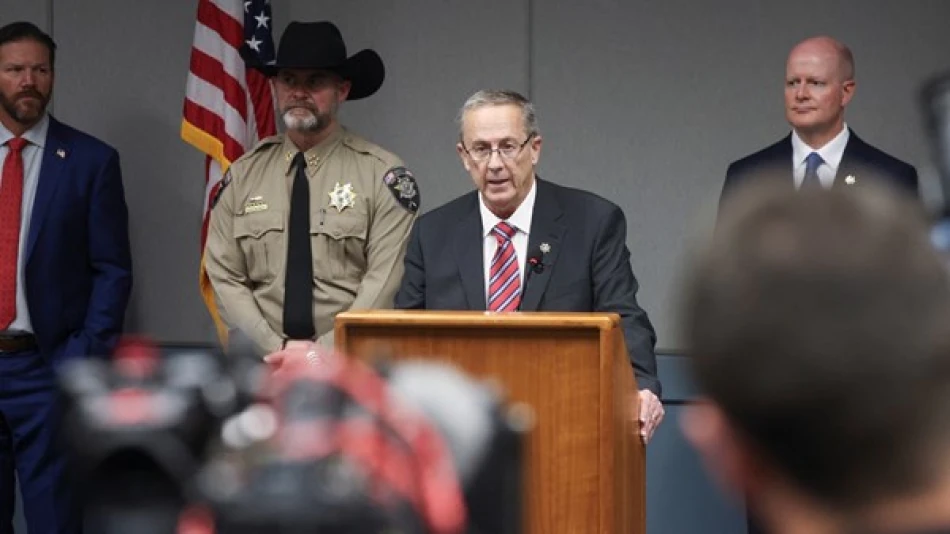
Alleged Killer of Influencer Charlie Kirk Faces Death Penalty Demand
Utah Prosecutor Seeks Death Penalty for Conservative Influencer Charlie Kirk's Alleged Assassin
Utah Attorney General Jeffrey Gray announced Tuesday that Tyler Robinson faces murder charges in the assassination of prominent conservative influencer Charlie Kirk, with prosecutors pursuing the death penalty. The case has sent shockwaves through America's political commentary landscape, highlighting growing concerns about violence targeting public figures across the ideological spectrum.
Seven Charges Filed Against Suspect
During a press conference, Gray revealed that Robinson faces seven charges, including murder "for intentionally causing the death of Charlie Kirk under circumstances that posed significant risks and threatened the lives of other people." The severity of the charges reflects both the premeditated nature of the attack and the public setting where it occurred.
The decision to seek capital punishment underscores Utah's aggressive approach to prosecuting high-profile political violence, particularly cases involving what authorities believe was targeted assassination of media personalities.
DNA Evidence Links Suspect to Crime Scene
FBI Director Kash Patel confirmed Monday that DNA samples collected from two items found near the assassination site match the detained suspect. The evidence includes a screwdriver discovered on the roof of a Utah university campus, the location from which the gunman opened fire.
Investigators also recovered a towel wrapped around the rifle, which was equipped with a scope. Both items yielded DNA evidence matching Robinson, according to Patel's statement to Fox News.
Premeditation Revealed Through Written Evidence
Perhaps most damning is a letter Robinson allegedly wrote before carrying out the attack, stating: "I have an opportunity to eliminate Charlie Kirk and I will seize it." The FBI director noted that this letter was subsequently destroyed, though investigators were able to recover its contents.
Broader Implications for Political Commentary Security
Kirk's assassination marks a dangerous escalation in threats against political commentators and influencers who have become increasingly prominent in American political discourse. Unlike traditional politicians who receive Secret Service protection, media personalities and online influencers typically rely on private security or operate with minimal protection.
This case parallels growing concerns about political violence that have affected figures across the political spectrum, from congressional baseball practice shootings to threats against Supreme Court justices. The targeting of a media figure rather than an elected official represents a troubling expansion of political violence into the commentary sphere.
Legal Strategy and Capital Punishment Considerations
Utah's decision to pursue the death penalty reflects both the state's willingness to use capital punishment and the perceived severity of targeting political speech through violence. The state has executed seven individuals since 1976, most recently in 2010, indicating prosecutors face a high bar for successful capital cases.
The multiple charges suggest prosecutors are building a comprehensive case that could include terrorism-related enhancements, given the apparent political motivation and public nature of the attack. Federal authorities' involvement through the FBI indicates potential parallel federal charges, which could also carry death penalty provisions.
The case will likely become a flashpoint for debates about political violence, free speech protection, and the security challenges facing modern media personalities who operate in increasingly polarized environments.
Most Viewed News

 Layla Al Mansoori
Layla Al Mansoori






